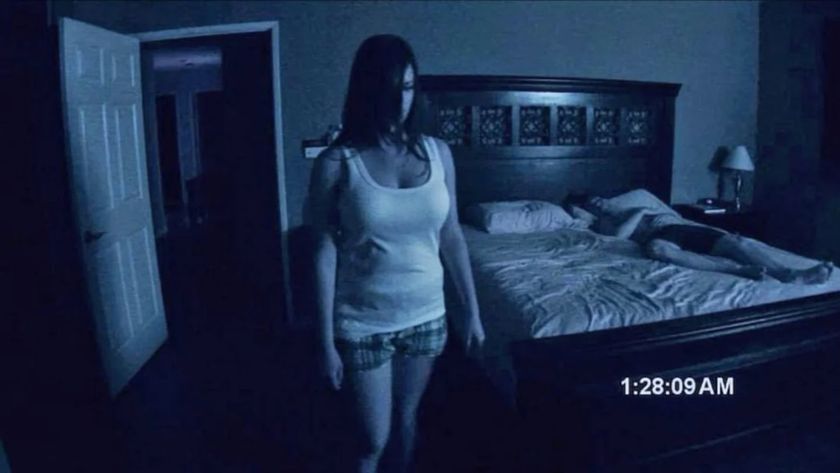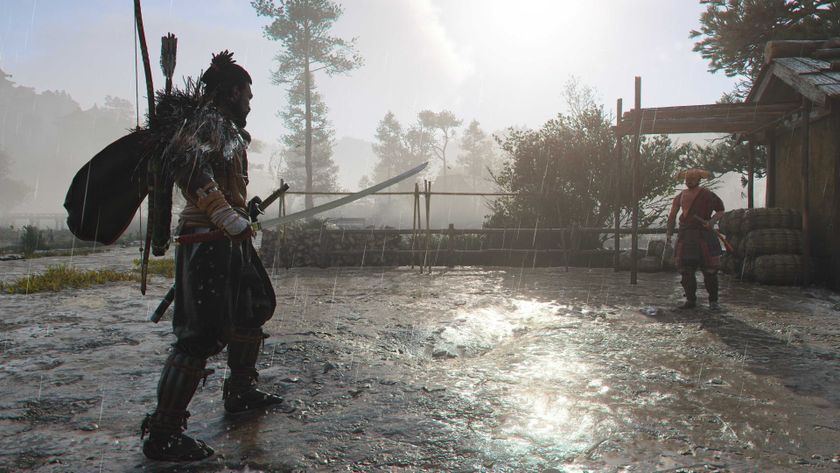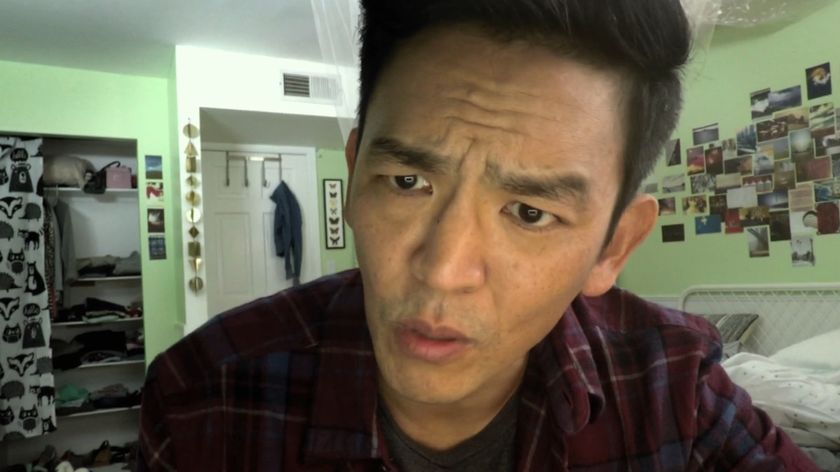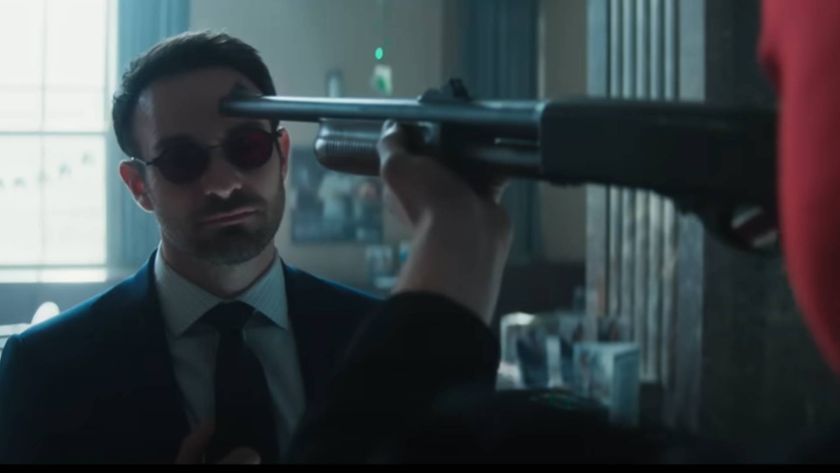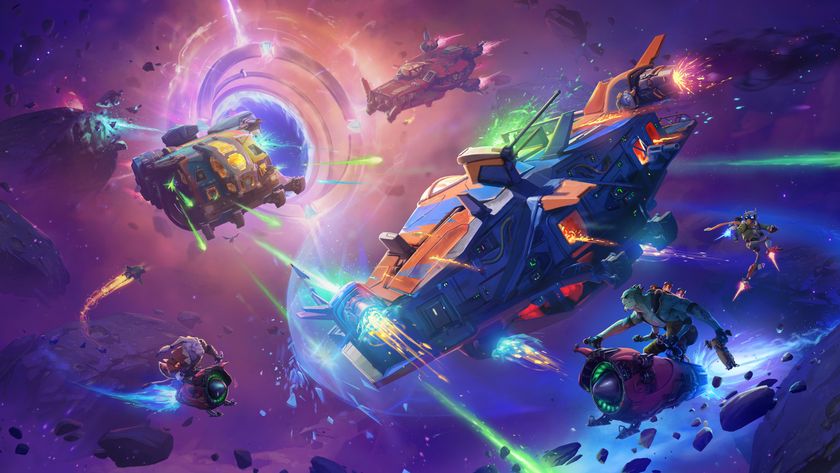Respawn tell us how they finally brought Titanfall’s revolutionary shooter systems to PlayStation
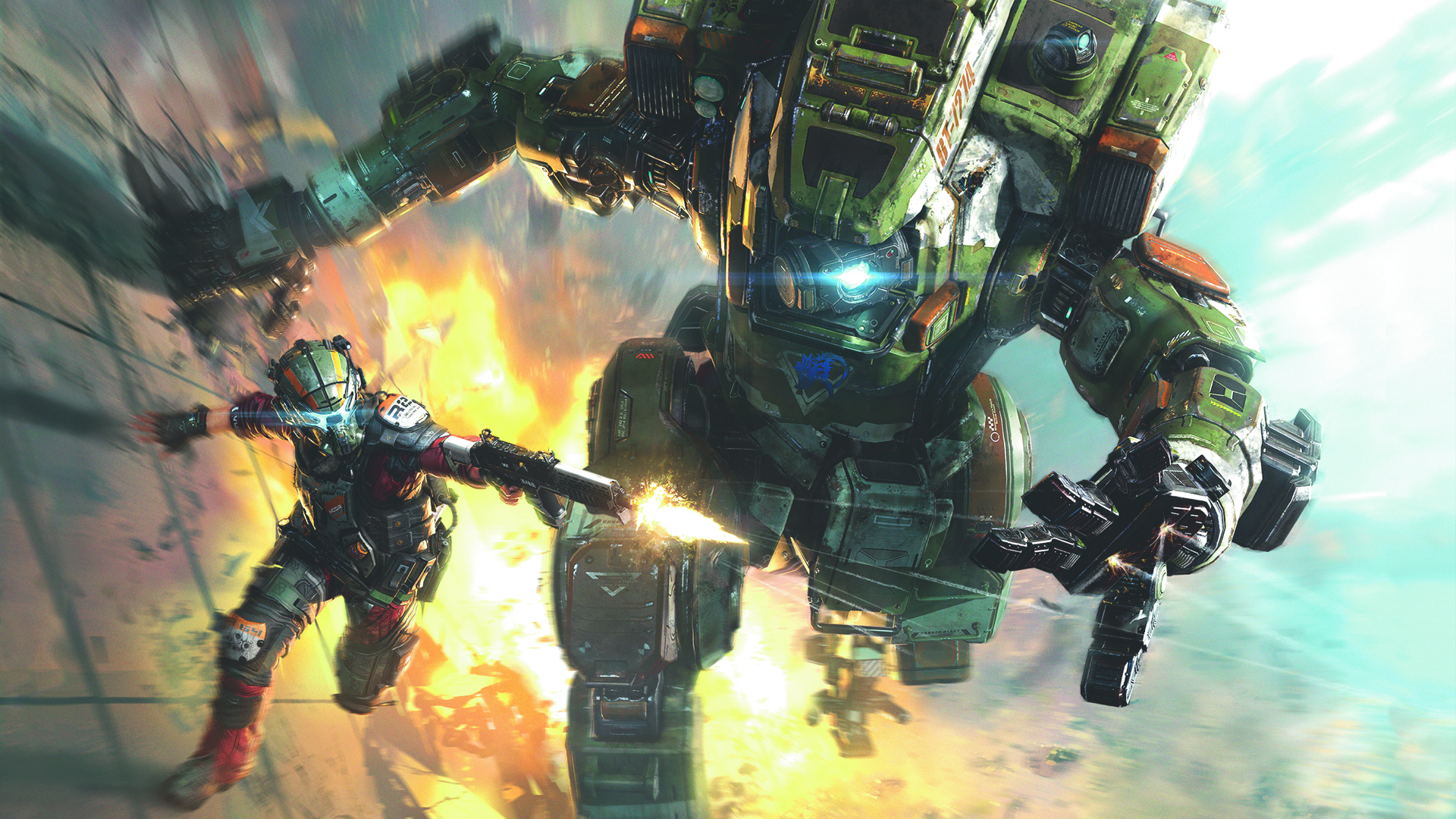
This interview was originally conducted by Official PlayStation Magazine following E3 in June 2016
Forgive us for using the X-word, but use it we must. Fast-paced, mech-based first-person shooter Titanfall was an Xbox exclusive. Now, the team at Respawn Entertainment – composed of many of the ex-Infinity Ward creatives behind the Call Of Duty franchise – are bringing the robo-rodeoing action to PS4 with Titanfall 2. Jen Simpkins sits down for an exclusive interview with founder and CEO Vince Zampella, producer Drew McCoy and lead multiplayer designer Todd Alderman to discover how the PS4 sequel builds upon Titanfall’s incredible momentum.
OPM: The first Titanfall was only available on Xbox. Were you expecting it to release on PlayStation eventually?
Vince Zampella: We always set out that originally it was going to be on Xbox at launch. We didn’t know it was necessarily going to be permanently exclusive, so that was a bit of a surprise. We worked it out though, it’s all good! We’ve buried all hatchets!
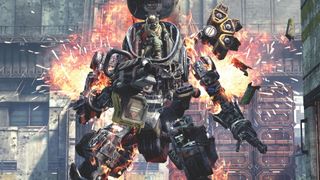
OPM: Why is it so important to you to bring Titanfall 2 over to PlayStation 4?
VZ: Ultimately, it’s about bringing in as many people as possible to play the game. We spent years of our lives making these things, so we want as many people as possible to see them. It makes sense. We want playerbase so the games are more fun and more balanced, we want to get better games going, but it’s also just... this is all about the fans. It’s bringing things to the world that people enjoy, so the more the merrier.
Drew McCoy: The whole reason we do this is so people can have fun, and the more people who have fun playing our games, the happier we are at doing our job and to keep doing it.
Sign up to the 12DOVE Newsletter
Weekly digests, tales from the communities you love, and more
OPM: What kind of technical challenges were involved in bringing the Titanfall series from Xbox to PlayStation?
DM: We’ve been through [this process] multiple times. Usually, when you add a new platform, it’s pain and suffering, because they’re so different in their architecture and development platforms. But honestly, the PS4 is pretty easy to get to [grips with] because the architectures aren’t that different, the tools are good, and everyone’s figured out how to make software now. It still took a lot of really hard work, but we had amazing engineers.
VZ: There was a certain amount of groundwork that you have to do to get it up...
DM: But it wasn’t the type of thing where it was like, “Oh God, we never thought about this. How are we going to handle that?” Nah. It’s a lot of hard work but it’s been smooth sailing.
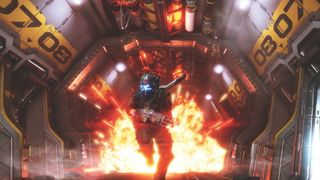
OPM: You basically invented the modern shooter genre with Call Of Duty during your time at Infinity Ward. But the Titanfall series is a very different kind of shooter. Has your philosophy on creating first-person shooters shifted at all?
VZ: I don’t think it’s a shift in philosophy: I think we try to do something new. Every time we bring something new to the players and expand on what we’ve done, and do something that we love. We’re all game players, so if we love it, we hope that there’s a lot more people who will love it.
DM: I have seen a pretty dramatic shift in the average person who says, “Oh, I play games every now and then” – what their inherent skill level is, even in whether or not they can use a controller with sticks on it.
Back when we were doing Call Of Duty 2 and Call Of Duty 4: Modern Warfare, someone who said, “Oh, I play games every now and then,” they wouldn’t know what to do when we put a controller in their hand. Now you put a controller in their hand and they’re trying to pull off headshots and they’re doing crazy stuff, because it has become so popular and the reach has gotten so much larger that the inherent skill base has risen.
VZ: [That’s] a shift in the playerbase, not necessarily in us.
DM: If we had tried to do the original Titanfall ten, 12 years ago, it would have failed because people didn’t know how to play it. We make games that we think are fun, and so we’ll try something and then we’ll test it. We’ll bring in random people “off the street” and we test it. We saw where they’d get stuck and what they’d have fun with. If they’re having fun with it consistently then it’s good to go. But if it’s too complicated then there’s lots of stuff that we have to strip out or refine down so it’s intuitive, understandable and fun. Who knows what the next ten years will bring for us, but it always starts from a place of “what’s fun for us to do?”

OPM: Call Of Duty 4: Modern Warfare’s campaign is widely regarded as one of the genre’s best. What lessons did you learn from working on that to help you construct the campaign for Titanfall 2?
VZ: We put campaign in the multiplayer in Titanfall to try something a little different, and it was the second-most played mode. People liked that story, they liked feeling the story of the universe. There was a lot of demand, a lot of, “We want more of this,” so taking it offline made sense for this game. We had more time, more resources to do it. It’s just about bringing a different type of story to players.
OPM: You’re focusing on the Titan/Pilot relationship. Why is that particular aspect so special for a shooter?
VZ: That’s kind of at the core of Titanfall, that interaction between the two.
DM: If you boil down the original Titanfall, you’ve got these guys who can get robots and they blow stuff up. Okay, that’s great – but where it really has the magic is the execution, the feeling and the tone of it all. When a Titan picks you up and puts you in them and the doors close, it talks to you while you’re fighting and he’s giving you feedback. When facing two Titan enemies, “I suggest a retreat” – all these things, even in the original Titanfall, people responded to it very well. Even though Titans in the first game were very disposable because of multiplayer, people still loved them and they felt a connection there. That is the core of Titanfall.

OPM: What about those loyal PlayStation players – i.e. our beloved readers – who might never have played the first Titanfall?
VZ: They don’t have to worry that they didn’t get the first game. You don’t have to have played the first game to pick this one up. The story, the single-player, is all new. It ties into the old game’s story and the universe – there are some characters that are coming back – but it’s not something where, if I don’t know the story, I’m not going to know what’s going on.
DM: We were very aware of the fact that we’re adding PlayStation, which is huge – that’s a huge amount of people who might never have played Titanfall. We’re very aware of the fact that we need to make sure that everyone feels welcomed into this game.
VZ: And all the mechanics and multiplayer, everything’s there, but we’ve got the chance now to refine it and hone it and iterate on things. All the core is there, it feels like Titanfall, but it’s just a much better, smoother experience.
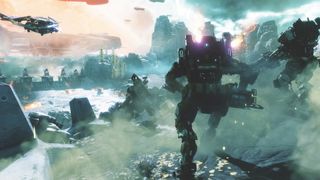
OPM: The TF2 map we’ve tested is bigger than TF1’s maps but more conducive to wall-running. Has your approach to level design changed?
DM: We learned a ton [from Titanfall]. Titanfall was kind of like a proof-of-concept game. We had to prove to ourselves and to the world that we could make a game that was really fast, mobile and had this size and power differential between the Pilot and the Titan. Once we did it, and realised we could do this and everybody likes it, now we have a whole other dev cycle to make it amazing. Everything about the game has just been taken to the next level.
Flow is definitely important, we’ve done a lot of work on it. There are really subtle things in there to make you more aware of when your wall-run is happening, or about to stop because you’ve gone too far and you’re about to fall off; how reliable your jumps are going to be, how far you go, and all of these things to make it super-intuitive, without ruining the core of what is Titanfall.
OPM: Which is, as you’ve said, the interplay between Pilot and Titan, right?
DM: For single-player, we’re allowed this space to explore, to go deeper on it.
VZ: Single-player is a lot different. We’re trying not to talk too much about single-player – there’s a lot of cool stuff that we don’t want to get out.
DM: We don’t want to spoil it for people because the sense of discovery in single-player is worth saving!
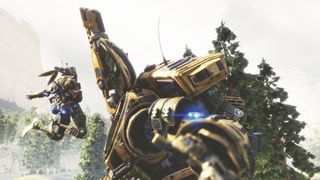
OPM: Titanfall’s always been about moving around its world at high speed – is there a big focus on exploration in single-player?
VZ: There is a lot of that. There are some new mechanics that are really, really fun.
DM: When we sat down to do single-player, we decided that, mechanically, the mobility, the freedom of movement of a Pilot and that freedom to get in and out of a Titan, that’s paramount – we can’t compromise on that. To craft a single-player around that meant we had to make a game that was a little bit more discoverable, it wasn’t quite so, “Walk down this hallway and watch explosions.”
OPM: So it’s not linear?
DM: It’s not open world at all. It’s still a linear story being told, but there are some pretty large environments where it’s up to you how you want to go through that.
VZ: There are definitely multiple paths, multiple different ways you can attack some things. And there’s probably some new paths that we haven’t even found yet because players go nuts – they do some amazing things.
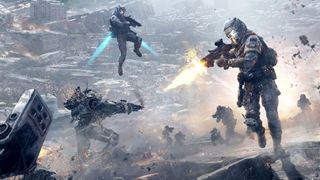
OPM: It must be incredible to see players playing your game and discovering things you didn’t even realise were possible.
VZ: We were just talking about this yesterday! It used to be that you’d launch a game and, for the first week, everyone on the team would be better than everybody out there. Now that seems to last about 14 minutes! (Laughs) And everybody just gets so good so fast – players just pick it up so much faster these days.
DM: It’s awesome to see what people gravitate to. Obviously, the big thing that everyone tries is the new grapple hook, which is awesome. But we also have some other stuff in there that once people figure out and they try it, they’re like, “Wow, I had no idea this would be so cool!” and they actually find something that they like more. That excites us. We’re doing our job right when there’s something for everyone, that they feel like, “This was made just for me!”
OPM: Do you think what players want from a shooter has changed much over the years?
DM: People have gotten better but also, man, they’ve gotten so quick to devour content. Back when a lot of us did Call Of Duty 4, it had 20 weapons or something, maybe 25? And a couple of skins, and it was like, “Oh my gosh, there’s so much in this game, we’ll never see it all!” Now if you release a game like that, people are like, “I was done in two days, what else have you got?” That’s great, because it puts us in a position of trying to make sure we are making a lot of really deep content for everyone – the games are constantly better as a result.
VZ: Though it does make it harder to balance.
DM: It does make it harder to balance, but, you know? All it takes is time, time, time.
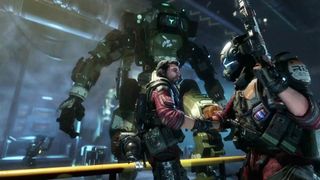
OPM: You say Titans were more disposable in the first game... so, they’re less disposable in Titanfall 2?
DM: In the multiplayer, it’s very similar, but they actually have a bit more personality now. They’re not so generic, like Scorch and Ion – they definitely have personalities in the way they talk to you and their voices, and it goes along with their abilities and their visuals. They are an identity much more than in the first game. But they are still going to blow up a lot!
OPM: Is there a process or particular inspiration for how you go about creating the concept for each Titan? To putting all of those aspects together?
VZ: Do you want to jump in, Todd?
Todd Alderman: For this game, they’re sort of inspired by Street Fighter characters. We wanted them to be like a package that had a theme, and all of their abilities go along with that theme. Scorch himself is kind of like a pyromaniac, with [his abilities] based on that. So we sort of figure out what themes we want the six Titans to be themed as, and then how those will counter-play with each other and interact.
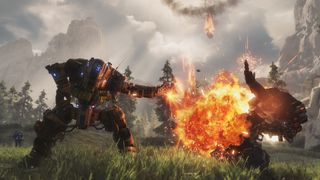
OPM: So you have fighting game-style match-ups, depending on how different Titans work against each other?
VZ: Exactly. When you go into a fight, you know your opponents in Street Fighter and you adjust your play accordingly.
TA: You know what he has, you know what you have, and you react differently. And also in Titanfall 2’s different game modes, each Titan has their own role and their strengths based on their defined playstyle, so it’s really interesting in as far as the combinations that you can have. On some of the modes you can see what your team composition is and you can say, “Oh, this guy’s using a sword, so I’ll pick Ion...”
OPM: Do Scorch and Ion feature in the campaign at all?
VZ: They’ll be in there.
OPM: And you’ll be filling in their backstories?
VZ: Yeah, I’m not sure how much we’re talking about that right now! (Laughs) They’ll be there, but yeah...
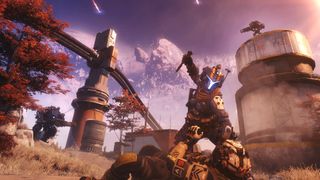
OPM: Are you working on possibly supporting Cross-Play between platforms?
DM: It’s tricky! (Laughs) There’s lots of ‘gotcha’s’ with every platform with what you can and cannot do.
VZ: We haven’t put a lot of thought into it just because we really can’t do it, but yeah – if we could string games together, then why not?
DM: We would love to do it, but we would need to have all the players have all the experience together. We could all have voice chat cross-platform; we could see details about players; we could matchmake together; we could do parties together: we’d need all these things for it not to be a lesser experience for certain people.
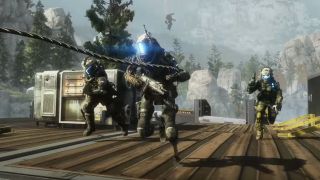
OPM: You’ve worked on shooters for a long time now. How do you personally keep things fresh and keep yourself excited about shooters?
VZ: It’s easy for this one, because we knew there was so much more we could and wanted to do with the first game that making this game was just... it was easy to just say, “Go!” – and the team is amazing. We’ve got a lot of really talented, creative people who throw out ideas: it’s not a lack of ideas, it’s a lack of time to do all of them.
DM: We have a belief that a good idea can come from anyone, and so we have a very open culture at the studio. For me, it’s inspirational every day to see what anyone’s doing. Seriously, everyone is world class. You can’t get a better team. We all feed off that energy, and every day it’s just exciting to see what people are accomplishing.
VZ: Especially when people are getting ready for E3, and we’re starting to see the finish line and things are changing so rapidly. You look at the game and a week later you see that same level, and you’re just like “Holy crap where did all this come from?” (Laughs) It’s amazing. People are working their asses off, but seeing that just energises you, it’s really cool.
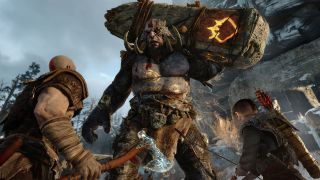
OPM: What excited you most at this year’s PlayStation E3 conference?
DM: Okay, first of all, bravo to Sony for having someone on stage for a total of two-and-a-half minutes. All I want to do is see games, so thank you!
VZ: It’s great to see Kojima show some cool, weird stuff.
DM: God Of War looked awesome.
VZ: Oh yeah, it looked amazing!
OPM: Apart from Titanfall 2, of course, could you pick one E3 2016 highlight?
VZ: The Crash Bandicoot remake.
DM: The X-Wing VR mission.
TA: Resident Evil VR looks pretty cool. It was surprising to learn that it was the Kitchen demo from last year.
DM: Did you play that too?
TA: Yeah!
DM: I like how much it played within the confines of VR without feeling like it was. It was perfect for what you can do in that situation – it was great.
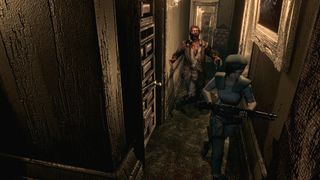
OPM: And to celebrate Titanfall finally making it onto PlayStation, can you each pick your most personally influential PlayStation game?
TA: Bushido Blade on PS1. I think it was my first PlayStation game. It was amazing.
DM: This is going to sound odd, but Ridge Racer. I was like, “Oh my god, I have an arcade in my house!” It was like the world opened up to me. (Laughs) And I love racing games, so that helps.
VZ: I remember the original Resident Evil – that moment at the start where the dogs jump out the side and it just scares the crap out of you... I still remember that moment, so I guess I’ll have to call that.
This article originally appeared in Official PlayStation Magazine. For more great PlayStation coverage, you can subscribe here.
Jen Simpkins is the former Editor of Edge magazine, and is a multi-award-winning creative writer. In her most recent industry role, Jen lent her immense talents to Media Molecule, serving as editorial manager and helping to hype up the indie devs using Dreams as a platform to create magical new experiences.
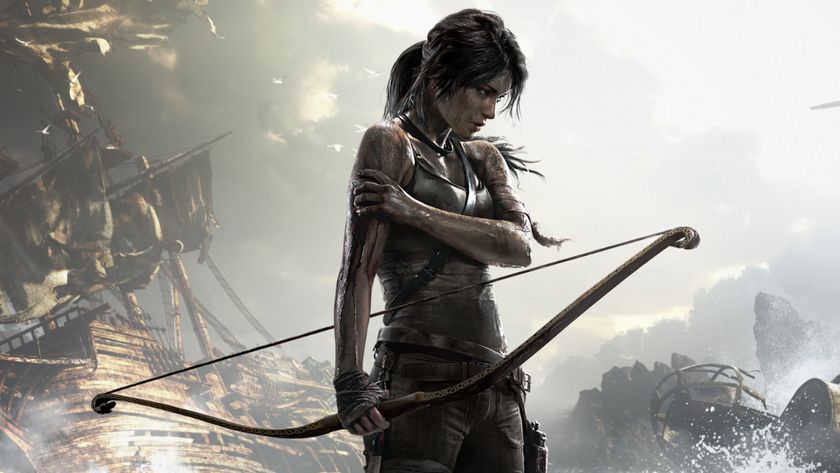
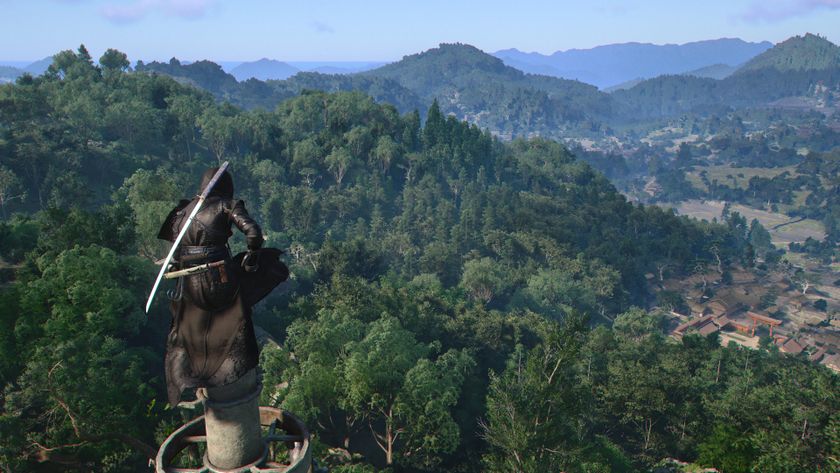
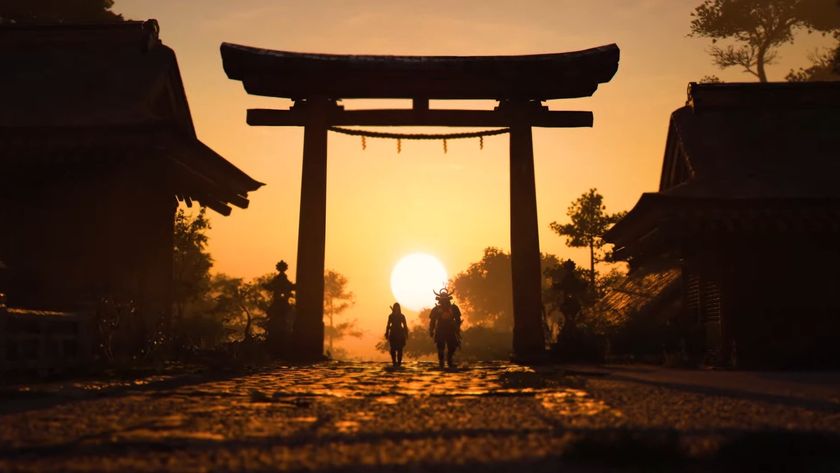
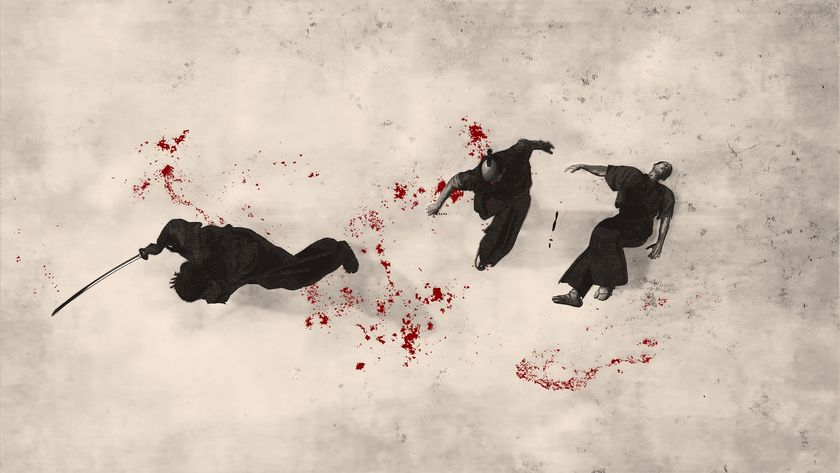
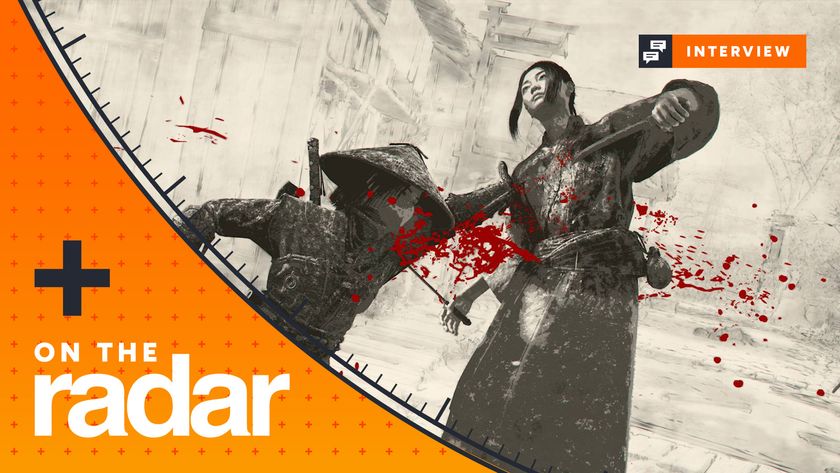
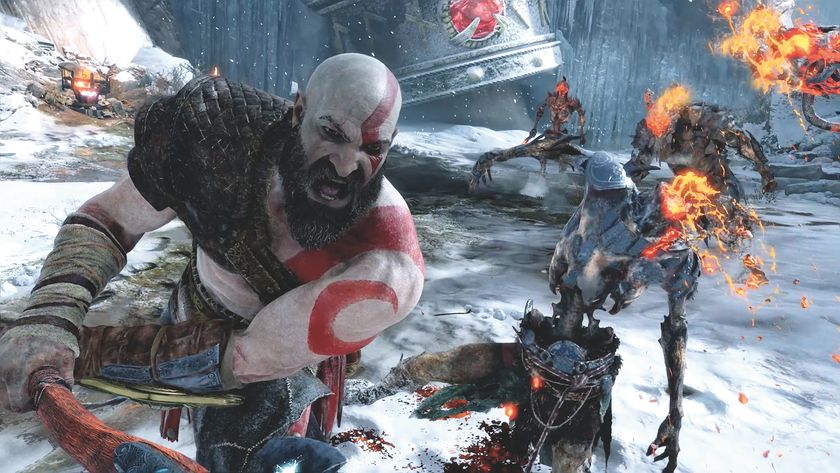

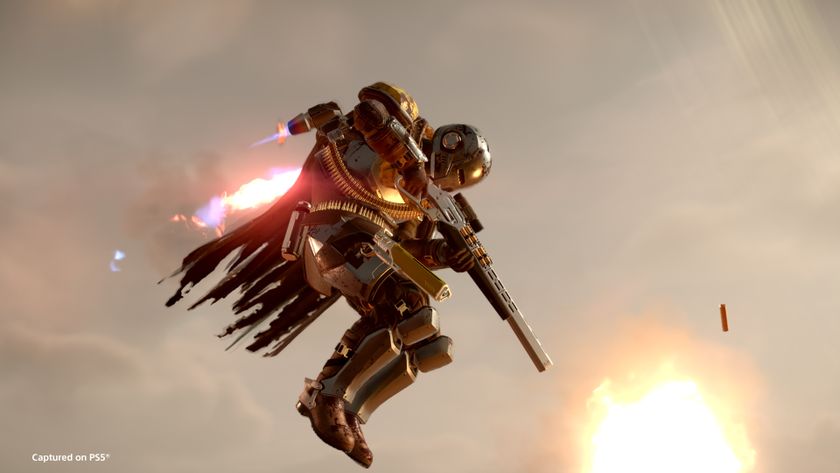
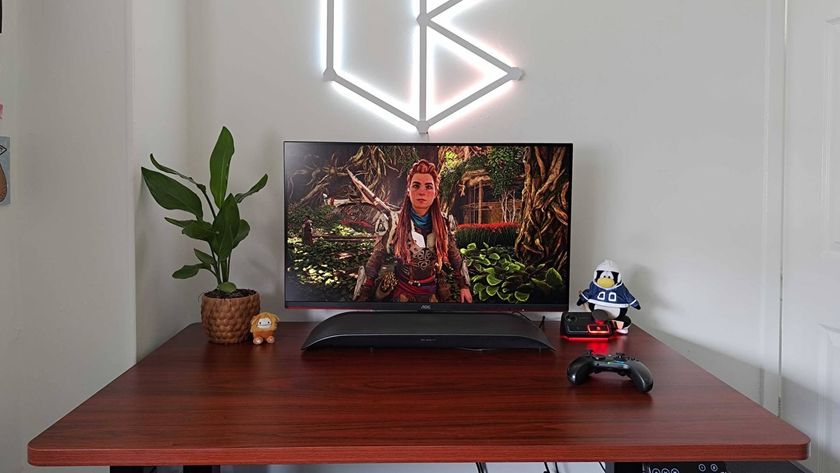
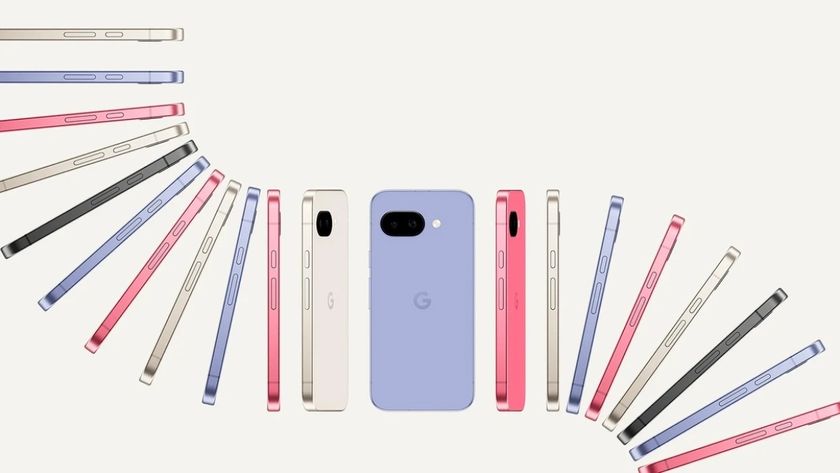
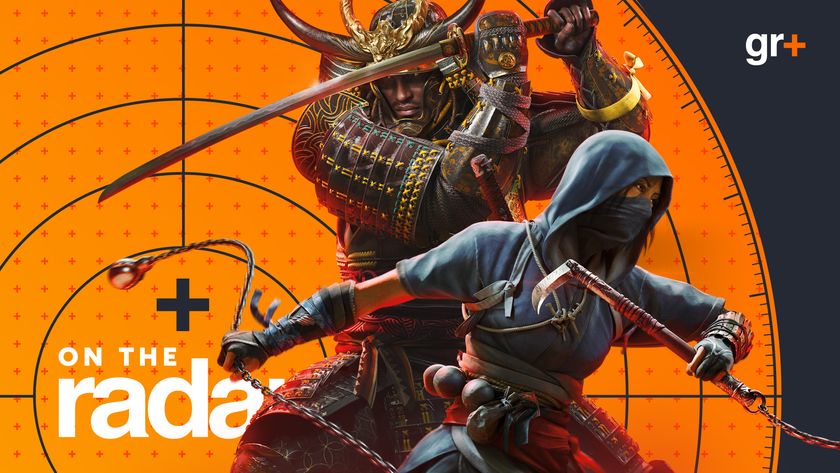
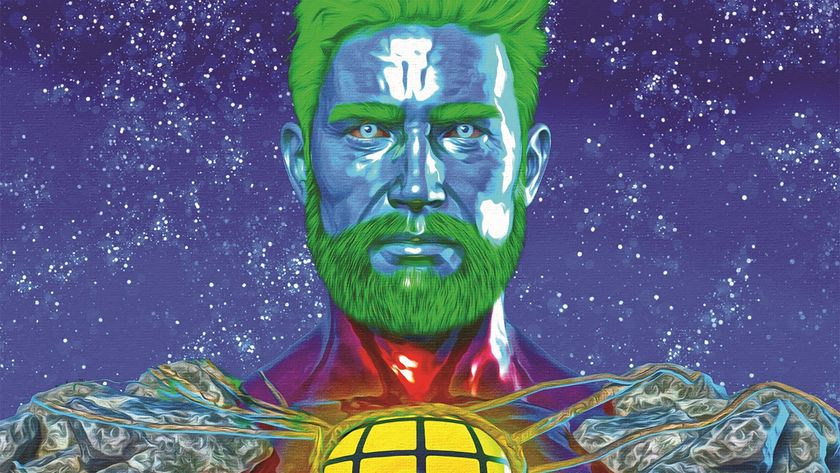

5 years after Avengers, 2 years after its last layoffs, and who knows how long before Perfect Dark and Tomb Raider return, Crystal Dynamics announces another round of layoffs

Getting Assassin's Creed Shadows on PS5 and Xbox Series X was all about adding "dynamism" to the open world, but the devs seem most proud about the trees

